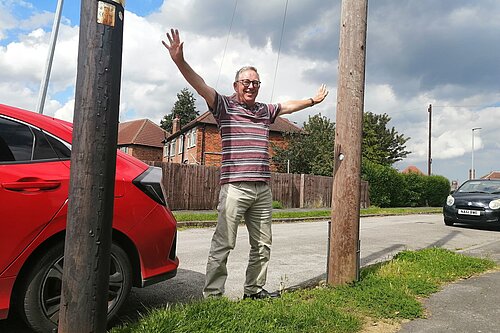
Liberal Democrats force action on fly tipping
Cllr. Phil Redshaw (LibDem, Cottingham North) has welcomed the decision by the East Riding of Yorkshire Council to allocate an additional £100k to combat fly-tipping at last week’s Budget meeting.

Cllr. Phil Redshaw (LibDem, Cottingham North) has welcomed the decision by the East Riding of Yorkshire Council to allocate an additional £100k to combat fly-tipping at last week’s Budget meeting.

East Riding Liberal Democrats are calling on Ofcom to intervene in the row over broadband telegraph poles in the area